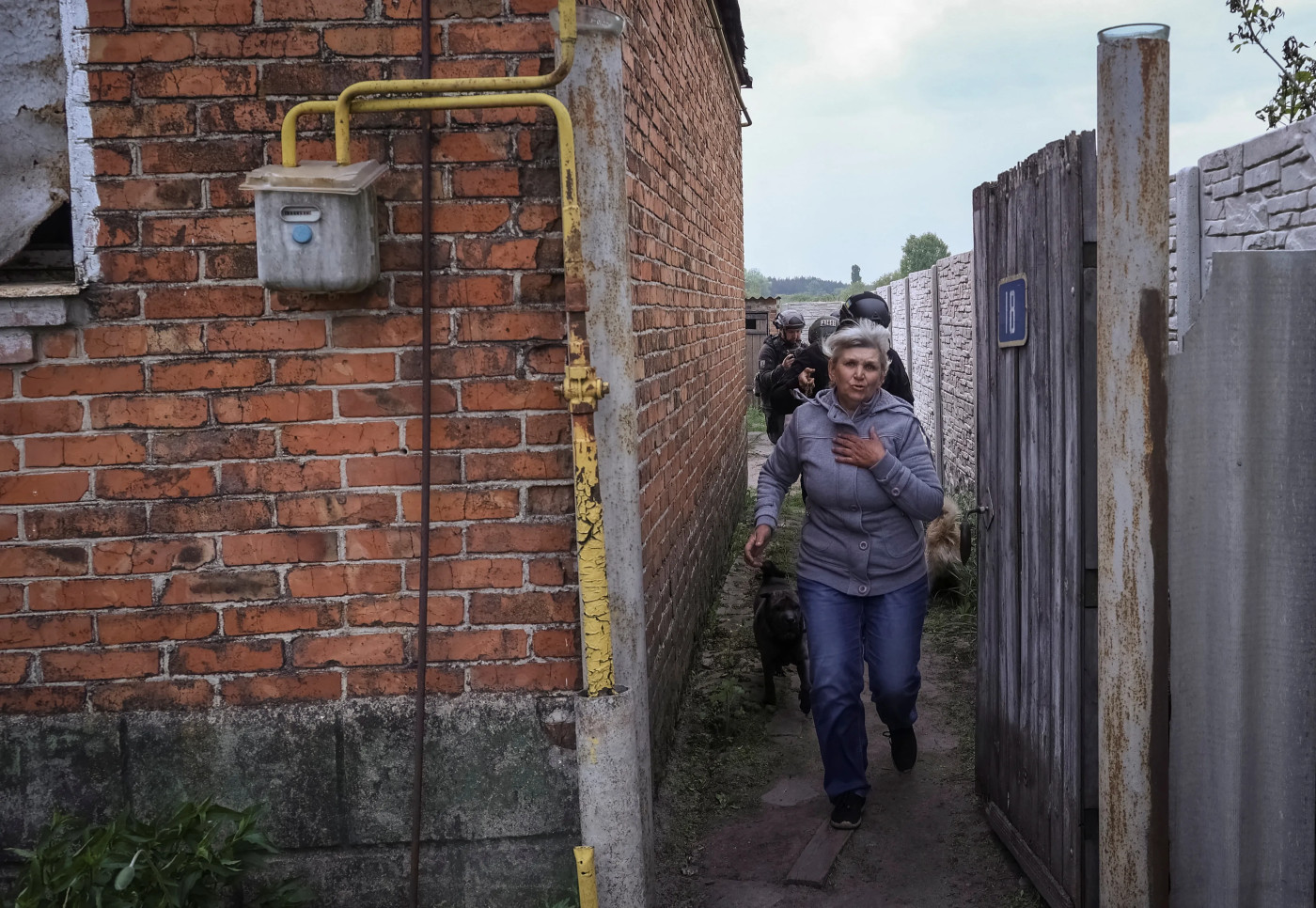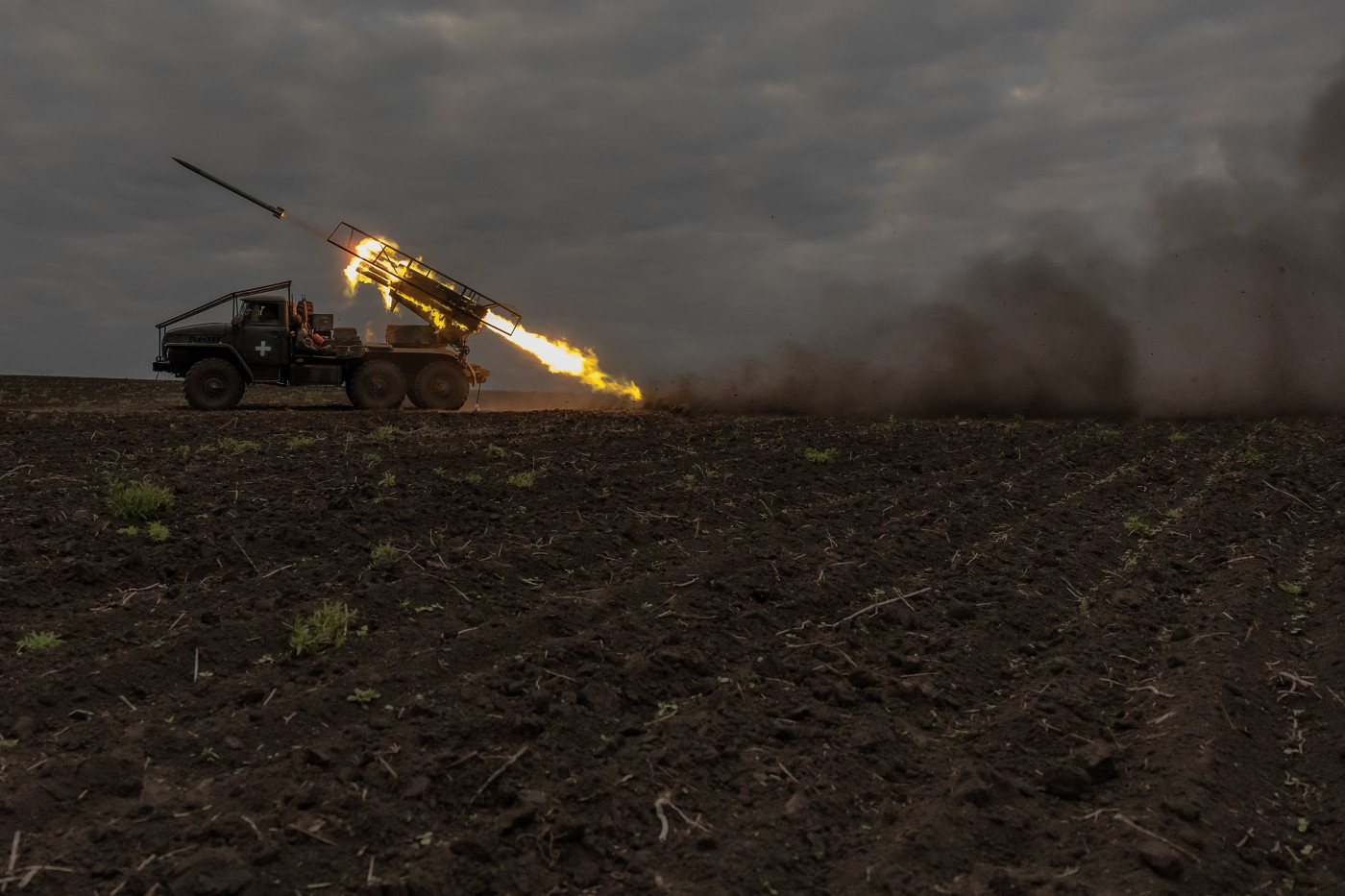U.S. Gaza Pier Moves Into Hamas Line of Fire
President Joe Biden's controversial Gaza Strip humanitarian pier is now anchored off the coast of the devastated Palestinian territory, potentially putting it in the sights of Hamas and other militant groups that have vowed to attack any foreign military presence.
United States Central Command (CENTCOM) said early Thursday that "personnel supporting the humanitarian mission to deliver additional humanitarian aid to Palestinian civilians in need anchored a temporary pier to the beach in Gaza."
CENTCOM continued: "As part of this effort, no U.S. troops entered Gaza. Trucks carrying humanitarian assistance are expected to begin moving ashore in the coming days. The United Nations will receive the aid and coordinate its distribution into Gaza."
Though no militant group has yet issued a direct threat against the pier, the coastal location intended for the structure was hit by mortars in April. The attack on a "marshaling area" for the pier caused minimal damage and took place while U.S. ships involved in the operation were offshore, Pentagon spokesperson Patrick Ryder said at the time.
Hamas and Lebanon's Hezbollah—both members of the informal Iranian-led "Axis of Resistance" engaged against Israel, the U.S. and their allies—have both threatened to target American forces if they become more involved in the fighting in the Gaza Strip or along the Israeli-Lebanese border.
Israeli forces have been preparing the ground for the arrival of the pier while the process is overseen by two U.S. Navy destroyers—the USS Arleigh Burke and the USS Paul Ignatius—in the Mediterranean.
Israeli military spokesman Nadav Shoshani has said that the project is "a top priority" for the Israel Defense Forces (IDF) and that Israeli forces have been "working for months" with the U.S. on its implementation.
An IDF spokesperson told Newsweek on Thursday that the American operation is being supported by both the Israeli Navy and Army.
"The Southern Command's engineers have prepared the area through the logistical requirements of the process and are still working there," they added, describing the terrain at the coast as "flat and ready."
During a Wednesday briefing with journalists, Vice Admiral Brad Cooper, the deputy commander of CENTCOM, stressed that there "will be no U.S. military boots on the ground in Gaza" as part of the humanitarian aid delivery project.
"As a point of emphasis, this a 100 percent humanitarian mission, and any attack on those working on it, on this mission, is an attack on aid for the people of Gaza," he said. "We will continue to assess and reassess security to inform our operation every day."
Asked how the U.S. would respond in case of an attack, Cooper declined to "address a hypothetical" but added that "anyone interfering with that will interfere with assistance going right to the people of Gaza, and we'll leave it at that."
Biden launched the pier project in response to the dire humanitarian situation inside Gaza, which since October has been the subject of an intense IDF offensive seeking to "eradicate" Hamas following its surprise attack into southern Israel that killed 1,200 people and saw more than 250 taken as hostages.
The Israeli offensive has killed more than 35,000 Palestinians, according to Gaza Health Ministry figures cited by the Associated Press. Most of the Gaza Strip's 2.2 million people have been displaced and swaths of the territory razed. More than 1 million people have been sheltering in the southern frontier city of Rafah, which is now facing the threat of a new Israeli offensive.
The White House has been pressing Israel to allow more aid into Gaza to alleviate the humanitarian crisis there, and the Pentagon has already been conducting humanitarian airdrop missions.
Dan Dieckhaus, the United States Agency for International Development's response director, told journalists on Wednesday that the entire population of Gaza "is facing acute food insecurity, meaning they require food assistance, and the threat of famine is looming."
"More than half of the population in northern Gaza is facing catastrophic levels of food insecurity, and nearly 30 percent of the children there are severely malnourished," he said. "In the south, in southern Gaza, nearly a quarter of the population is facing this type of food insecurity."
The southern border crossings at Rafah on the Egyptian frontier and Kerem Shalom on the Israeli frontier have been key lifelines for Gazans in recent months, but both are now closed.
Israeli forces took control of the Rafah crossing in a limited offensive operation there earlier this month. Egypt and Israel have been unable to agree on reopening it. The Kerem Shalom crossing, meanwhile, was closed by Israeli authorities last week following a rocket attack there that killed three IDF troops and wounded several more.
The humanitarian aid issue has become pointedly politicized inside Israel, with far-right politicians and groups demanding a total freeze on assistance until the release of all hostages still being held in Gaza. This week, activists stepped up their attacks on aid convoys heading toward Gaza.
Update 5/16/24, 9:36 a.m. ET: This article has been updated to include comment from the Israel Defense Forces.
Disclaimer: The copyright of this article belongs to the original author. Reposting this article is solely for the purpose of information dissemination and does not constitute any investment advice. If there is any infringement, please contact us immediately. We will make corrections or deletions as necessary. Thank you.

